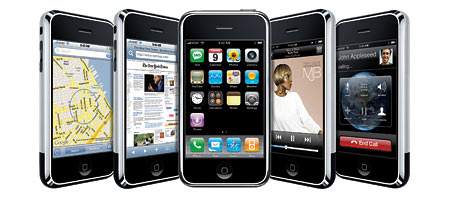A UK journalist has opined that consumers should be paying more – not less – for mobile applications.
According to Vic Keegan of the UK Guardian, higher priced mobile apps will help encourage developers to create quality programs as opposed to the cheap crap they currently churn out.

Discussing the irony of the polar opposite trends that are cloud computing and the local hoarding of apps on mobiles, Keegan laments that people are becoming “prisoner” to their service providers because the apps are developed for individual phones and operating systems, rather than being uniformly available.
In app utopia, says Keegan, users would be able to pass their apps about between different devices and developers wouldn’t have to spend oodles of time and money making the same app for different phones.
This, says Keegan, would make everything a whole lot cheaper, because apps wouldn’t be so bloody difficult to develop in the first place.
But, then Keegan changes his mind and decides that cheaper apps are actually not the solution, after all. In fact, cheaper apps are the bane of our very existence. Cheap and free apps are destroying everything that we know and love, and they must be stopped.
Plugging market research outfit, Gartner, Keegan says physical downloads of apps in 2009 alone totaled some 2.5 billion and that these were predominantly for yuppies using iPhones and iPod Touches, which make up just one per cent of all phones out there.
This leads Gartner’s boffins to believe that – if their spreadsheets are correct – we should be seeing some 4.5 billion app downloads in 2010 and a whopping 21.6bn in 2013.
The problem, however, according to Keegan is that “a staggering 87% of these downloads will be free for users.”
Shock, horror, say it aint so!
True, it’s all very annoying that these free apps are, for the most part, propped up by advertising, but to label it a “grave distortion in the balance of power,” is perhaps a tad on the melodramatic side, we-thinks.
And as Keegan points out, even the apps that are charging are having a tough time convincing punters to pay. One particularly useful sounding app – Toilux – which finds public toilets for those with pee-sized bladders can’t even get impatient pee-ers to shell out a dollar for its watercloset satnaving.
Talk about taking the piss.
But Keegan goes on to rant that GPS apps which sometimes cost as much as $45 are being “undermined by Google” which has brought out free navigation apps. Lost the plot a bit Keegan?
Yes, it’s sad that developers only end up with 60 per cent of the revenues from their app after Apple and Taxes have had their wicked way with the rest, but is the obvious answer, as Keegan advises “to raise prices?”
“It is all quite crazy, really,” explains Keegan. “People who pay more than £2.50 ($4) for a cup of coffee that is gone in a few minutes are reluctant to pay £1 ($1.5) for a paper that will last for hours or an app that will be with you for ages.”
So, er, how does raising prices on apps help with that, then? People should pay more for apps they already don’t want to pay for?
Keegan doesn’t say. What he does say, however, is that Google (the very Google he lambasted for killing $45 satnav apps with its free GPS software) may help by enabling people to code apps easier on its open source Android.
And if you find any logic in that conclusion, good on you.






